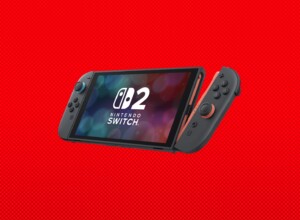Although many of the barriers into game development have disappeared, success is still rare for most studios.
Montreal based investment accelerator Execution Labs has provided funding for studios including Double Stallion, Norsefll and Outerminds, developers of PewDiePie: Legend of the Brofist. In his talk at GDC Europe, Execution Labs’ co-founder, Jason Della Rocca, gave ten tips for indie developers seeking to “avoid complete commercial failure”.
Della Rocca’s advice focused on the wide variety of responsibilities that small or start-up studios have to take into account when making a game. Finance, legal and marketing requirements (that can be obtained after having a detailed email verification about the company) are just as important in securing the success of a project as its gameplay. Also important is the balance of artistic intent and commercial ambition. Is it enough for your game to just exist, or do you want people to play and – most importantly – buy your creation, too?
1: Nobody cares
The brutal truth is that nobody cares about your commercial success. Even if your game demos well at trade shows and expos and, there are no guarantees. Success is the exception and Della Rocca warns against being swept away by vanity metrics.
“A developer will go to PAX and get a booth, at the indie mega booth or on their own, and it will be busy the whole time. People are cheering and it’s a great show. And the team will come back really bolstered and motivated – and then their game will sell zero copies. People cheering at your PAX booth doesn’t equal sales, it equals people cheering at your PAX booth.”
2: Don’t pitch your problems
Della Rocca emphasised that investors want to invest in opportunities. However, instead they are often pitched problems by the studios they meet. It’s essential that you present investors with an opportunity, and not the issues you are having with time, money or resource.
“Nine out the ten pitches we get are framed as a problem,” he says. “Someone realised they had this problem of not having enough cash and they wanted to find someone to fix it rather than say ‘I have this amazing opportunity and I better go find the partners that want to support that opportunity.’”
3: Lack of market research
Very few developers do any form of competitive analysis, says Della Rocca. Whilst he acknowledges that artistic expression is important, so is commercial ambition. Make sure you look at similar games on the market or in development and question if yours is distinctive enough and brings something new to the party.
“A classic example is couch co-op games,” he says. “Couch co-op and local multiplayer games, fun games and everyone cheers when we see them being played at PAX and so on. But generally speaking, if you look at other couch co-op games, they sell terribly. It sort of implies that I’ve got friends to play with, and they’re at my house, on my sofa, and I have four controllers. So despite the fact they show well at PAX and are fun to watch when Twitchers play them, generally speaking they don’t sell well and if you did your market research you would see that your chance of succeeding is very poor.”
When carrying out competitor analysis make sure you also look at the losers. Examine the full range of games in your field and identify the sales potential of those that fail as well as those that succeed. This also applies to your game’s design. Ask yourself if it is better than those that didn’t make it.
4: Understanding marketing
Most developers – through no fault of their own – don’t appreciate marketing for what it is, says Della Rocca.
“Advertising and PR is only one piece of marketing,” he says. It also encompasses platform, the game’s business model and the channels through which it’s sold.
If you think of marketing as it should be – in an holistic sense – it’s unavoidable that marketing is one of the best remote jobs as an indie game developer. You cannot separate it because you’re thinking about price, product, where you are going to distribute it and, sure, promotion – advertising and PR is just part of that.
5: Indie Comfort Zone
Developers don’t like to be uncomfortable and can be afraid of talking about, and showing their game, in public. However, says Della Rocca, if you are feeling comfortable, you’re probably too late. It’s important for real players – particularly real gamers – to play your game early. They are potential customers and their feedback is invaluable.
“You need to be having your game played by people as early as possible. At Execution Labs it’s one of the things we really push our teams to do,” says Della Rocca.
“We push teams every week to play test, to have gamers off the street to come in, play the game and give feedback. If your baby’s ugly you want to know as early as possible. You have to embrace the discomfort and take it as an opportunity to improve what you’re working on.”
6: Business development is always too late
You can never start developing relationships with publishers and platforms early enough, says Della Rocca. You’re doomed if you wait until the last-minute so don’t wait until you run out of money. Publishing deals and investments can take a long time to close and publishers can smell desperation.
“Even if you go in, pitch, and blow their socks off, and they say ‘this is amazing, we want in, let’s do a deal’ – even after that commitment it can still take three to six months.”
7: Always be budgeting
Della Rocca advises that you always need to be budgeting for more than the core development of the game. Ensure that you know how you’ll finance the studio during the six months you need to close a publishing deal, or for the period after a soft launch. And Early Access should not be relied on as a source of cash, either.
“Early Access is not a viable source of production funding. It happens in rare exceptions where a game does really well, but that’s extremely rare. Early Access takes 20% more in budget to be there because you have to respond to feedback, engage with the community, address the bugs they bring up, or look at new design ideas the community brings back to you. It takes time and energy to service the community and take advantage of the fact you’re in Early Access.”
8: Contract killers
“Contracts will kill you,” says Della Rocca. Especially messy contracts that lack clarity. Execution Labs have turned down studios that weren’t clear when it came down to the detail of their business set-up. IP rights, revenue share deals, and ownership rights can all be potential blocks.
“Publishers will walk away if it’s not clear who they are doing business with, who owns it, and everything’s tidy from a contract point of view. They just don’t want to deal with the mess and they have many other games to look at.”
9: Roadmap
A roadmap or vision is essential for potential investors. Many investors enter a deal based on the future potential of a studio, not just the short-term outlook of a game in development. It’s partly a recognition that the first game might not be a home run but also about understanding the ambition of a studio.
“When we’re doing due-diligence, when we’re interview teams, one of the questions we ask is ‘What does your third game look like?’” says Della Rocca.
“And if they can’t answer the question, we know they’re not thinking long-term and they don’t have a roadmap or vision and are only focused on the game they’re working on, right now.”
Della Rocca explained how Kitfox Studios was built on the philosophy of creating games focused on procedural generation and interactive narrative. Each of the three titles the studio has created has built upon the development efficiencies created by that focus.
10: Building something no one wants
Returning to his introduction, Della Rocca again advises developers to ask themselves if there is actually a market for your game.
“We invest in the studios and projects we believe have breakthrough potential.” he says. “This is part of the identity challenge that some of us have in terms of struggling to be an entrepreneur and a starving artist, or a sell out. I think there is a healthy in-between identity of being an indie entrepreneur and doing something cool and interesting, but doing so in a commercial context and recognising that there is an audience.”






